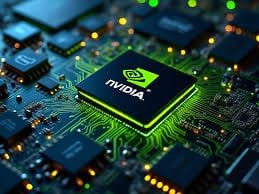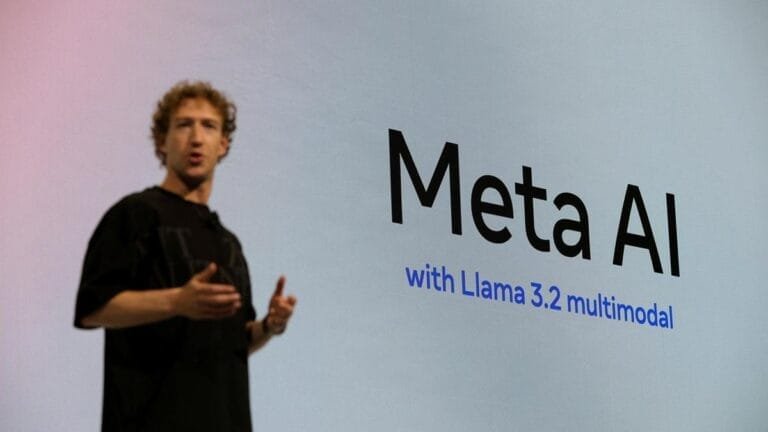
The US bans Nvidia's H20 chip exports to China, hitting the chipmaker with a $5.5 billion charge.
Recently, the US government has imposed new restrictions on the sale of certain advanced artificial intelligence (AI) chips to China. This decision has a direct impact on the world’s leading chipmaker Nvidia, which is estimated to face a hefty duty of $5.5 billion (approximately ₹45,655 crores) due to these restrictions. This development not only affects Nvidia’s business outlook but also brings significant changes in the global technological and geopolitical landscape. In this article, we will discuss all the important aspects of this event in detail.
Gist of the event
On April 15, 2025, Nvidia announced that it will face a duty of $5.5 billion due to new restrictions imposed by the US government on the export of its H20 artificial intelligence chip to China. The H20 chip is one of Nvidia’s most popular products and is important for the company’s presence in the Chinese market. US officials have taken this step to ensure that the most advanced chips are not sold to China so that America remains ahead in the AI race.
Reason for ban
The US government has imposed this ban citing national security concerns. They believe that these high-performance chips can be used to power military-grade supercomputers in China, which could threaten US security. The H20 chip in particular has such memory and interconnect bandwidth capabilities that could make it useful for building supercomputers. The US has banned the sale of AI chips for use in supercomputers in China since 2022.
Nvidia’s response
Nvidia has expressed disappointment over this news. The company says that the H20 chip was specifically designed for the Chinese market while complying with US export controls. After earlier restrictions, Nvidia began developing chips that could be as close to US borders as possible and still be legal to sell in China. The H20 is one of those chips. And Nvidia said in a regulatory filing that the US government had notified it on April 9 that a license would be required for the export of the H20 chip, and on April 14 said that these rules would remain in place indefinitely. The company also said that its results for the first fiscal quarter (which ends on April 27) are expected to include a charge of about $5.5 billion for inventory, purchase commitments and related reserves for H20 products. And while Nvidia did not say how many licenses the US government might issue or whether it will do so at all. The company has declined to comment further on the matter.
Market impact
Nvidia shares fell by about 6% in after-market trading after this announcement. Apart from this, shares of other chip companies like AMD and Broadcom also saw a decline, making it clear that this move can have a wide impact on the tech industry. And the development comes at a time when Nvidia recently announced that it plans to build up to $500 billion worth of AI servers in the US over the next four years with the help of partners such as Taiwan Semiconductor Manufacturing Company (TSMC). The move is in line with the Trump administration’s push to boost local manufacturing.
Impact on Chinese companies
Several major Chinese tech companies, including Tencent, Alibaba and TikTok parent company ByteDance, had increased orders for H20 chips. The increase was driven by rising demand for low-cost AI models from startup DeepSeek. While the H20 chip is not as fast at training AI models as Nvidia’s chips sold outside China, it is competitive with some of them in a process called inference where AI models provide answers to users. Inference is fast becoming the biggest part of the AI chip market, and Nvidia CEO Jensen Huang argued last month that Nvidia is well-positioned to dominate this shift. And although due to the new sanctions these Chinese companies may now find it difficult to obtain these chips from Nvidia which may affect the pace of their AI development. They will now have to look for other options which may be either less powerful or more expensive. Geopolitical context This ban is a part of the ongoing technological and trade tensions between the US and China. The US has long been concerned about China’s technological development, especially in the field of AI and semiconductors. They believe that China can use these technologies for military and surveillance purposes which may threaten US interests. In recent years, the US has imposed several sanctions on Chinese tech companies such as Huawei and has taken steps to prevent the transfer of advanced semiconductor technology to China. These sanctions are aimed at preventing China from achieving technological self-sufficiency and becoming a global technological power.
In response, China has also invested heavily to boost the domestic semiconductor industry and reduce its dependence on foreign technologies. However, China still lags behind the US and other countries in the design and manufacture of advanced chips.
Future implications
This tariff on Nvidia and the ban on chip sales to China have many long-term implications





